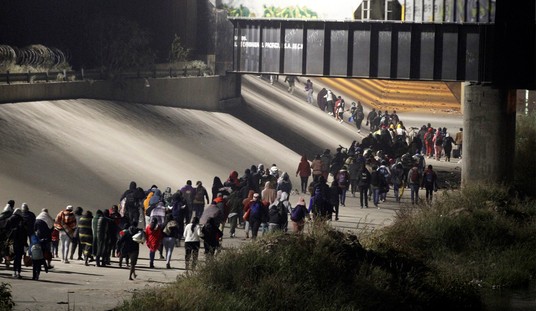Honestly, Buddhism puzzles the hell out of most people in the West. (Actually, it puzzles the hell out of people everywhere, but we’ll stick with the West for today.) When Shakyamuni Buddha (which is to say this guy Siddhartha that people talk so much about) was asked about any of the big questions religion is supposed to answer, his reply was “don’t bother your pretty little head about such things, sugar.”
Well, strictly, it was a little more formal than that, but that was the basic answer. There was an old ascetic, Vacchagotta, who came to the Buddha one day and started asking the big questions about the world, about life after death, whether the Universe was limited or infinite, and so on. Vacchagotta was from a different group, and he was trying to get Shakyamuni to engage in debate, and Shakyamuni wouldn’t do it. Vacchagotta would ask, and Buddha would just stay silent.
Finally, Vacchagotta asked Buddha “why won’t you answer?” and that question Shakamuni would answer. He told Vacchagotta that if he were to answer any of those questions one way or the other, then he would be siding with one side or the other in various big theological debates. From these debates, he said, arises disputes and arguments and contention and suffering. So he wasn’t going to answer at all.
Buddha was pretty cagey that way: when people tried to nail him down on big philosophical questions, he always came around to ask “is this helpful in ending suffering?” So there’s really no concept of sin in Buddhism, because there’s no concept of pure good and evil. Instead of Commandments, we’ve got the Precepts, which are just guidelines: do this, and you will tend to reduce suffering.
The key to understanding this whole point is to understand the concepts of karma and vipaka, which is to say “action” and “consequences”, or “cause” and “effect”. Whatever we do, making a decision has consequences, and Buddha pointed out throughout his whole teaching career that there were things you could do that increased suffering — like boinking your best friend’s wife — that tended to lead to suffering, and that refraining from those things tended to reduce suffering. In fact, Buddhist writings don’t even really talk about “good” and “evil”, although that’s the way it’s often translated. But the technical terms are actually kusala and akusala: literally “skillful” and “clumsy”. Things that are kusala are things like driving a nail cleanly and deftly, things that tend to reduce suffering. Things that are akusala, like not paying attention and hitting your thumb with a hammer, are things that lead to suffering.
The First Precept in every tradition is usually stated as “Refrain from taking life”. It’s a pretty good rule, in general — going around killing people, or even animals, is likely to cause suffering for the victim and for those around the victim, and that is likely to lead to suffering for the killer too. A lot of Buddhist traditions encourage vegetarianism for just this reason, although not all of them. Refraining from taking life is kusala.
So we here in the West have the idea that Buddhism is a pacifist religion. Then, along comes news like this week, of “militant Buddhists” in Burma or Myanmar or whatever the hell we’re supposed to call it, who have been violently reacting to some kind of conflict between the Buddhist and Muslim groups on the border with Bangladesh. This, in turn, has led to an outbreak of idiot-compassion goofiness among the Professionally Concerned Classes in the West.
The gist of the story is this: there were accounts of a Buddhist woman being raped and murdered by Muslim men. The same Buddhist monks who turned out in a peaceful revolt against the military government in Myanmar appear to be behind a movement against these same Muslims, including both some fighting and some more peaceful actions like asking Buddhists to boycott Muslim-owned businesses. The reaction of the Professionally Concerned Classes has been, basically, “Oh my God, those nasty fake Buddhists are violating their own religion.”
Followed, of course, by demands that the United Nations and the Burmese — uh, Myanmar-nese? — Do Something.
So, since we’re all Buddhas (we just got confused somewhere along the line) let’s put on our Buddha-hats and think about this in terms of what is skillful and what is clumsy here.
We can’t possibly follow back the chain of karma and vipaka to the very first cause of what happened, because there is no first cause, at least that we can nail down. The story is of a woman being raped and murdered, and this is undoubtedly not skillful. It’s an action, a decision made by people: karma.
(Now, you watch: someone is going to start talking about how this is because Muslims are Evil. But we’re wearing our Buddha-hats: in reality, there’s no such things as Muslims and non-Muslims, just people. Some of the teachings of Islam look to me to tend to reduce suffering, and are thus kusala; some don’t, and are akusala. But raping and murdering would tend to increase suffering no matter who did them.)
What follows from an action? Consequences. The Buddhist population reacted, with some violence. There were people killed — probably on both sides. Was this un-Buddhist?
The answer is no. In fact, Buddha said that it was explicitly permissible for a Buddhist to defend himself. (There was another recent outbreak of idiot-compassion when our friend Mr Gyatso, his Holiness the Dalai Lama, said that if someone is shooting at you it’s perfectly understandable if you shoot back.) Buddhists, “monks” or not, are responsible for their own lives and the lives of others; demanding that Buddhists not respond would also lead to greater suffering, and therefore would be clumsy.
Was it skillful? Maybe not. Defending themselves may lead to more tit-for-tat violence, which would lead to more suffering. But then, would sending in the Blue Helmets to separate them two groups be skillful? Frankly, I’m hard-pressed to think of any instance in which I’ve seen the UN be skillful. That’s the problem with idiot-compassion: compassionate but clumsy.
Is it understandable? Absolutely.
So, still wearing our Buddha-hats, what’re we to do? And the answer is “the best we can.” Other groups of monks in Myanmar are not reacting to the violence and saying “whoa, this sure looks unskillful. Maybe this kind of politics and militancy doesn’t reduce suffering.” Escalating violence in itself isn’t going to reduce suffering; neither is pacific refusal to fight back.
Whatever we do, though, will be an action, and will have consequences that follow.
****
image courtesy shutterstock / Vitaliy Netiaga











Join the conversation as a VIP Member